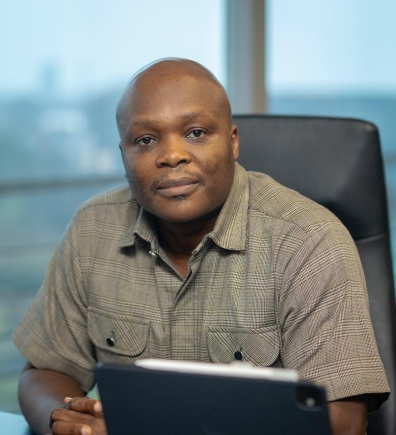
Development Bank Ghana appoints Dr Randolph Nsor-Ambala as new CEO
The Development Bank Ghana (DBG) has appointed Dr Randolph Nsor-Ambala as its new Chief Executive Officer (CEO), effective January 21, 2025.
Announcing the appointment in a statement, the Board Chairman, Dr Yaw Ansu, expressed gratitude to the outgoing CEO, Mr K. Duker, for his contributions to the bank.
He also welcomed Dr Nsor-Ambala, assuring him of the Board’s confidence and total support as he leads the institution into its next phase of growth.
Dr Nsor-Ambala is a seasoned development finance professional with extensive executive leadership experience in major corporate organisations, including Promasidor Ghana Limited, Coca-Cola, Diageo, and MTN.
Over the past fifteen years, he has worked on development initiatives funded by international partners across various sectors such as agriculture, manufacturing, education, ICT, governance, energy, and health. His work has focused on positioning the private sector as a driver of economic growth, improving gender parity, tackling climate change, and creating opportunities for marginalised and vulnerable groups.
His appointment marks a strategic turning point for DBG, reinforcing its commitment to building a competitive and resilient private sector in Ghana. As the bank transitions into this new era, it remains steadfast in its mission to accelerate inclusive and sustainable economic transformation.
Under Dr Nsor-Ambala’s leadership, DBG aims to be more innovative and catalytic, with a strong focus on impact investing and technical assistance to drive private-sector-led transformative growth. The bank will also prioritise improving access to long-term finance, fostering women's economic empowerment, promoting environmentally friendly initiatives, and aligning with contemporary Environmental, Social, and Governance (ESG) practices.
Since its establishment three years ago, DBG’s wholesale financing model has facilitated significant disbursements through Participating Financial Institutions (PFIs), unlocking projects and value chains in agribusiness, manufacturing, ICT, and high-value services.
The bank remains committed to bridging the financing gap for Micro, Small, and Medium Enterprises (MSMEs) by ensuring Ghanaian businesses have access to long-term, competitively priced capital to drive resilience, innovation, and sustainable growth.
